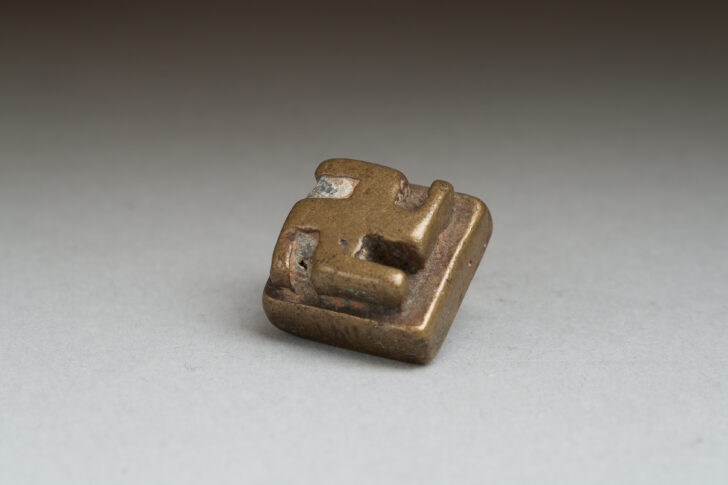Gold-weight
Akan

Description
Subject Matter:
The shape known as swastika in the West, and variations of this form, is a common motif on the goldweights used and produced by Akan-speaking peoples since around the 16th century (cf. Garrard, Akan Weights and the Gold Trade, 1980, p. 281). Informants from contemporary Ghana and Côte d'Ivoire give a number of interpretations for this form. It is sometimes called "efo'sa," or "monkey's hand," because of its supposed resemblance to the footprint of the colubus monkey (cf. Garrard, Akan Weights and the Gold Trade, 1980, p. 196). Alternatively, the form could be a stylized rendering of a common Akan motif and proverb: two crocodiles sharing one stomach, called "dindje blafou" in Côte d'Ivoire or " Funtumfrafu denkyemfrafu" in Ghana (cf. Garrard, Akan Weights and the Gold Trade, 1980, p. 196; Niangoran-Bouah, The Akan World of Gold Weights, 1984, p. 172). Finally, informants and scholars have interpreted the swastika-form and its derivatives as variations of a shaved hairstyle worn by the maidservants of a queen mother (cf. MacLeod, The Asante, 1981, p. 143).
Physical Description:
Gold-weight in the shape of a square base with two crossed lines, each with a set of two smaller parallel lines branching outward.
Usage Rights:
If you are interested in using an image for a publication, please visit https://umma.umich.edu/request-image/ for more information and to fill out the online Image Rights and Reproductions Request Form.